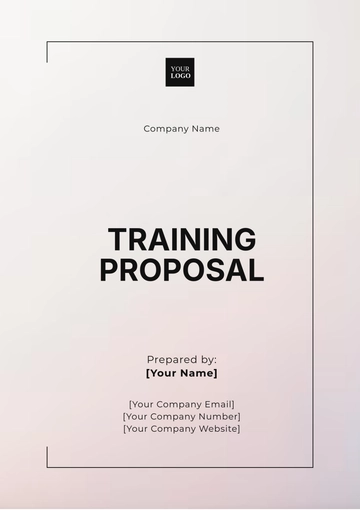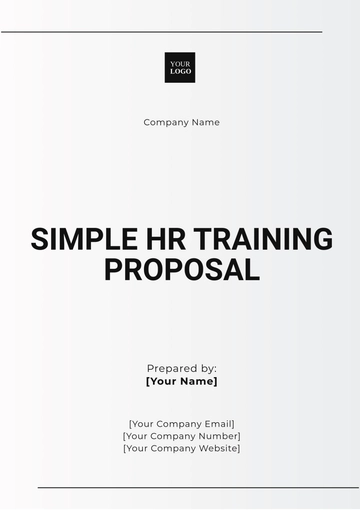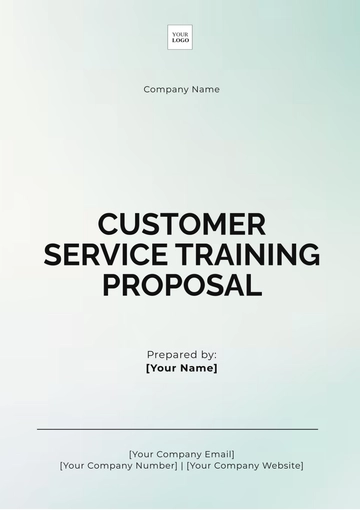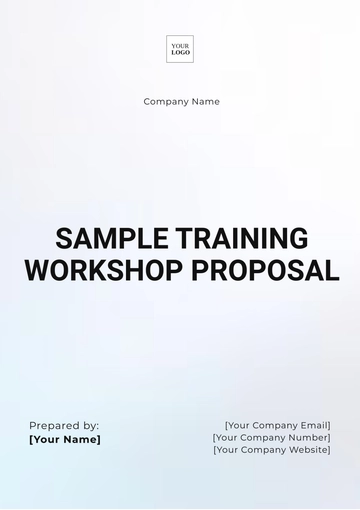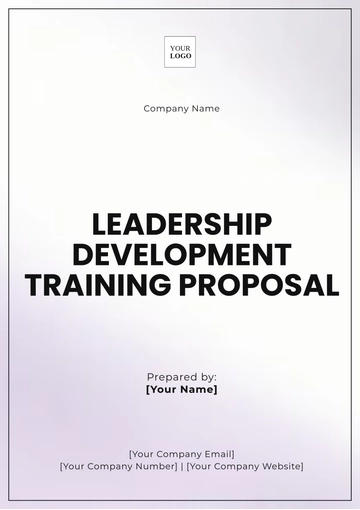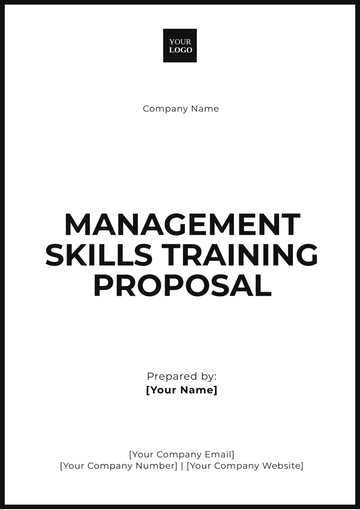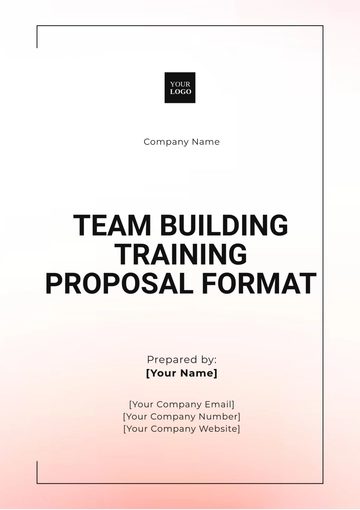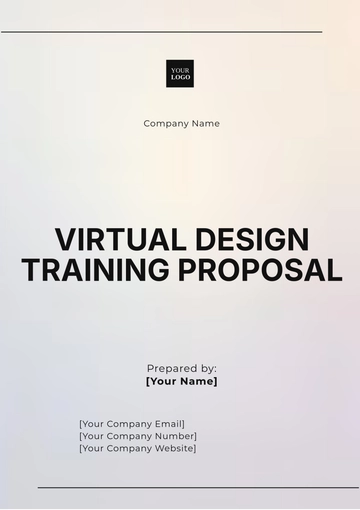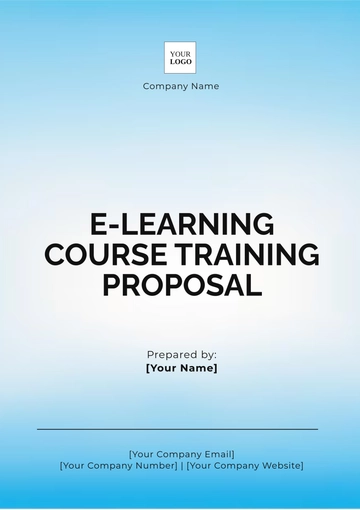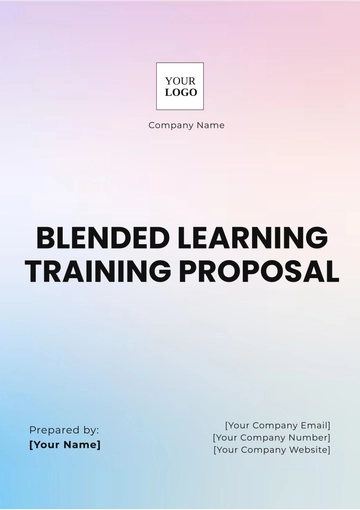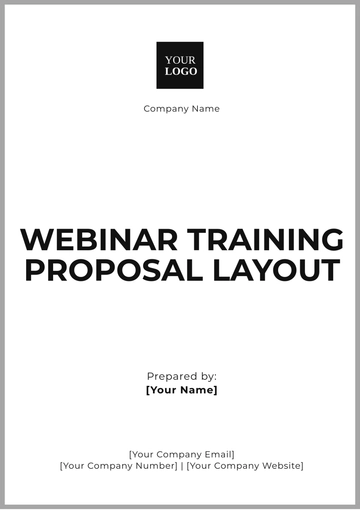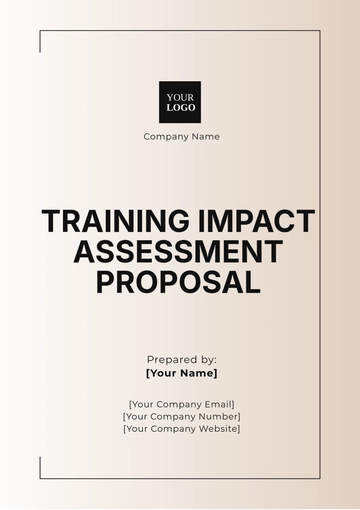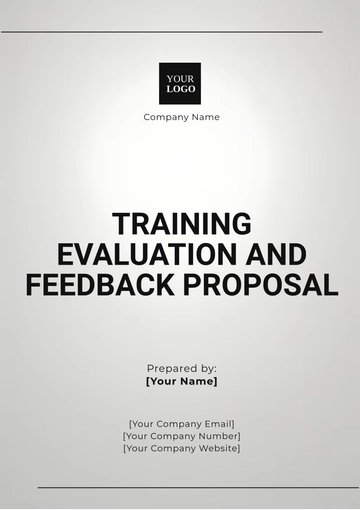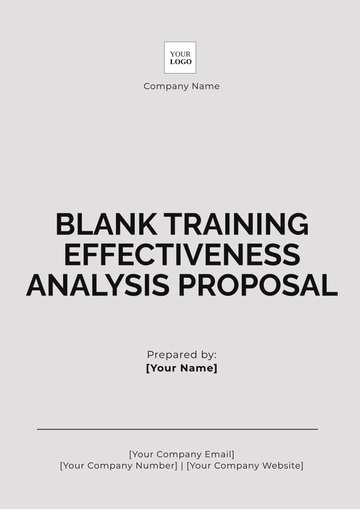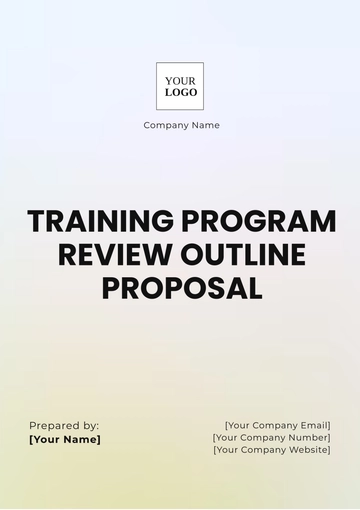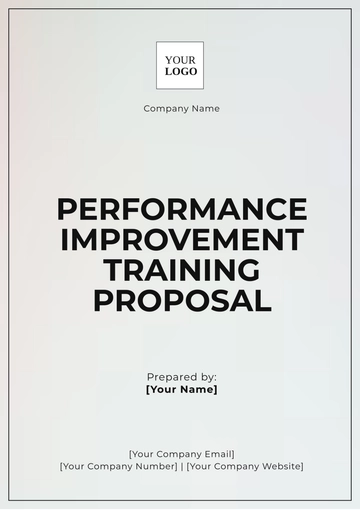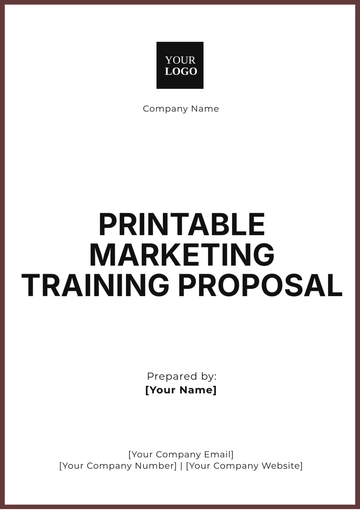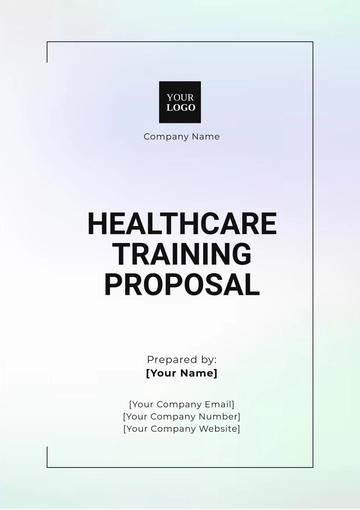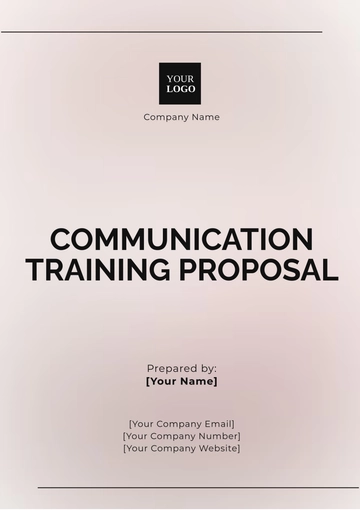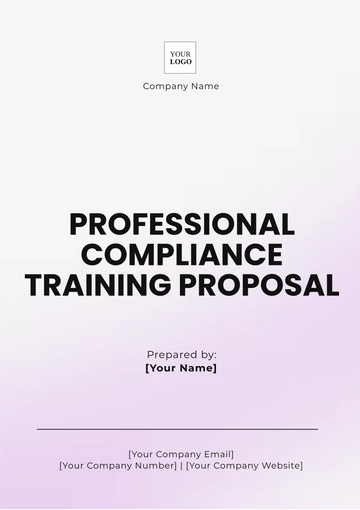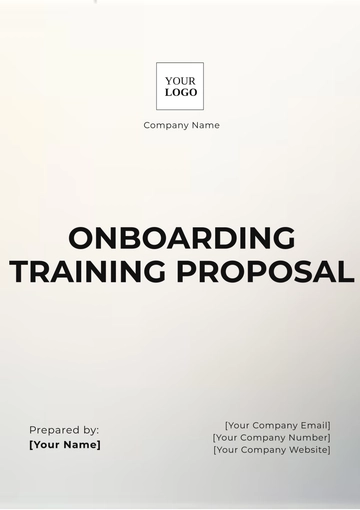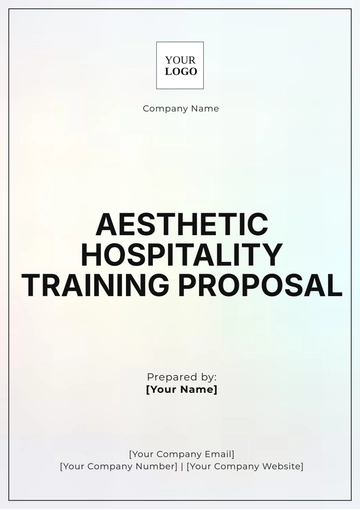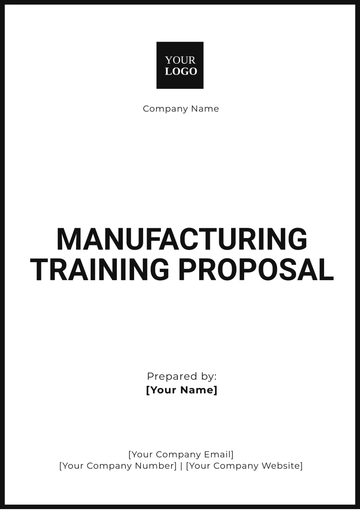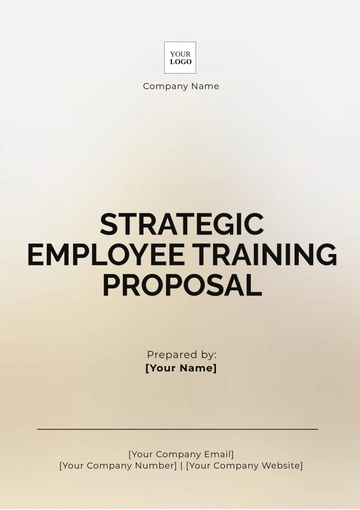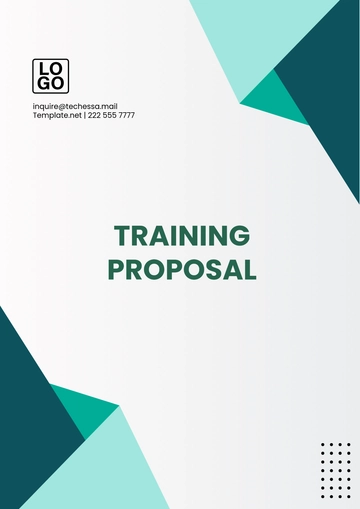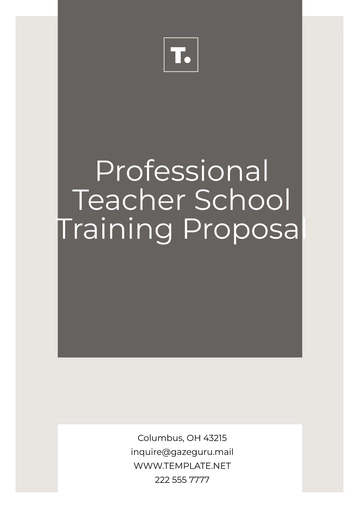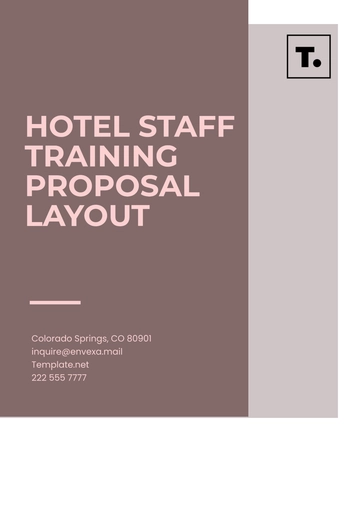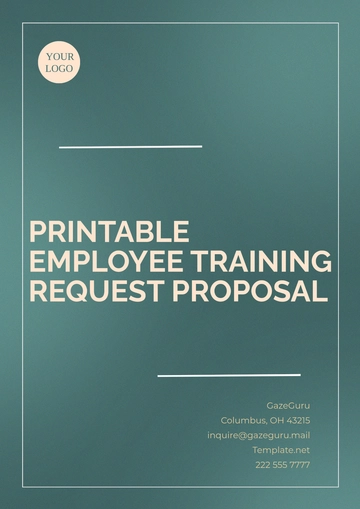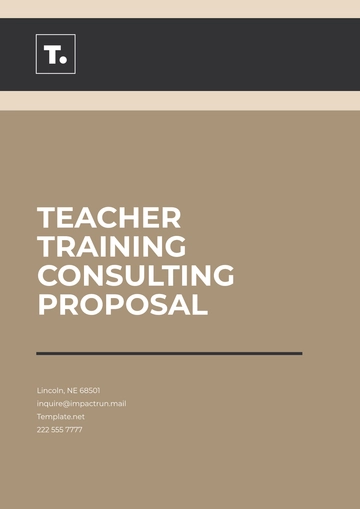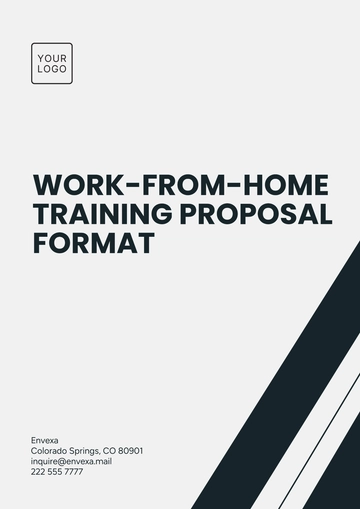Free Aesthetic Hospitality Training Proposal
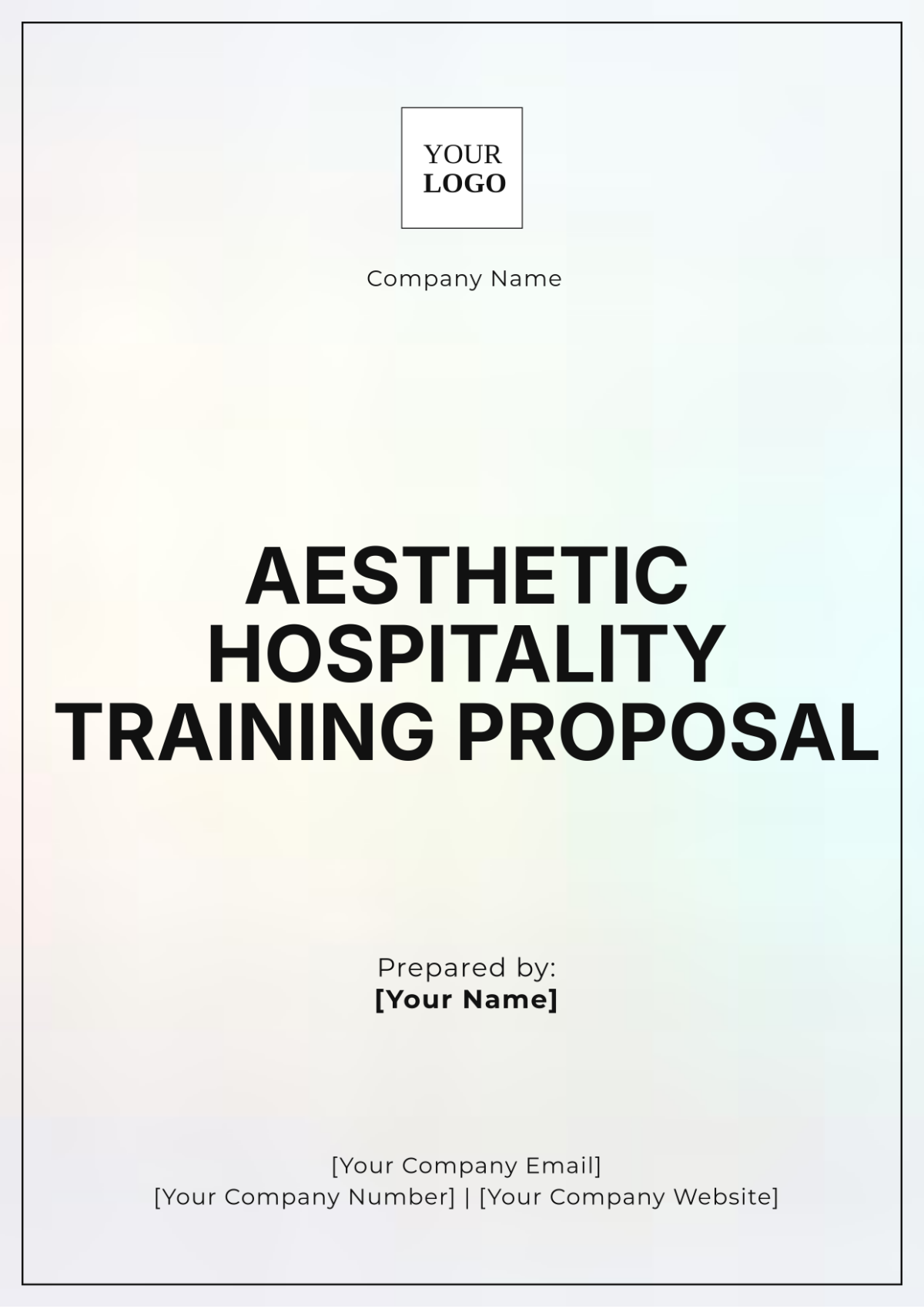
Prepared by: [Your Name]
Company: [Your Company Name]
Date: [Date]
I. Introduction
In the hospitality industry, first impressions are crucial. The aesthetic quality of service and environment significantly impacts a guest's experience. This proposal outlines a comprehensive training program aimed at enhancing the aesthetic and service standards in hospitality settings. By investing in staff development in key areas such as customer service, ambiance, decor, and staff presentation, hospitality organizations can ensure a superior guest experience, leading to increased customer satisfaction and loyalty.
Importance of Aesthetic Standards
Creating an inviting atmosphere not only draws guests in but also encourages them to return. Recent studies show that a well-decorated and aesthetically pleasing environment can increase customer retention rates by up to 30%. This program will equip staff with the necessary skills to uphold these standards consistently.
II. Objectives
A. Primary Goals
Enhance the quality of customer service to exceed guest expectations.
This goal focuses on developing a service mindset among staff, emphasizing the importance of personalized interactions and attention to detail.Improve the overall ambiance and decor to create a welcoming and aesthetically pleasing environment.
Training will emphasize the role of design elements in influencing mood and satisfaction, with strategies for continuous improvement.Elevate staff presentation to project professionalism and hospitality excellence.
Staff will learn best practices for grooming, attire, and body language, fostering a sense of pride and ownership in their roles.
B. Expected Outcomes
Increased guest satisfaction scores and positive reviews.
Enhanced service quality and aesthetics are expected to boost online ratings on platforms like TripAdvisor and Yelp.Higher staff engagement and morale, are reflected in improved service delivery.
A well-trained and motivated staff leads to a more enjoyable work environment, which translates to better service.Strengthened brand identity and competitive advantage in the marketplace.
Consistently high aesthetic and service standards will differentiate the organization in a crowded market, fostering brand loyalty.
III. Training Content
A. Customer Service Excellence
This module focuses on developing communication skills, empathy, and proactive problem-solving to ensure memorable guest interactions. Activities will include:
Role-playing scenarios that simulate various guest interactions, helping staff to practice and refine their responses in real time.
Workshops on emotional intelligence, enabling staff to better understand and respond to guest needs.
B. Ambiance and Decor
Participants will learn the importance of creating a stunning environment through strategic interior design, suitable lighting, and appropriate decor elements. Key areas include:
Color psychology and how different hues can affect guests' emotions and behaviors.
Seasonal decor strategies to keep the environment fresh and relevant throughout the year.
C. Staff Presentation
Training will cover personal grooming, uniform standards, and overall professional demeanor essential for staff in the hospitality industry. Key components include:
Workshops on personal branding, focusing on how individual presentation contributes to the organization's image.
Tips for maintaining uniforms and personal hygiene standards to ensure staff always appear polished.
IV. Methodology
A. Interactive Workshops
Participants will engage in role-playing exercises, group discussions, and case studies to apply learned concepts practically. These workshops will foster collaboration and idea-sharing among staff, leading to innovative solutions for common challenges.
B. Visual Demonstrations
Instructors will showcase real-world examples of high-standard hospitality settings to provide visual context and inspiration. This will include:
Virtual tours of exemplary hospitality venues to highlight best practices in aesthetics and service.
Before-and-after comparisons of service scenarios to illustrate the impact of effective training.
C. Feedback and Assessment
Regular feedback sessions will be conducted to gauge participant understanding and areas for improvement, ensuring a clear path to success. This includes:
Anonymous surveys to encourage honest feedback about the training's effectiveness.
One-on-one coaching sessions for personalized guidance and support.
V. Timeline
Phase | Duration | Activities |
|---|---|---|
Phase 1: Preparation | 2 weeks | Curriculum design, resource allocation, participant enrollment |
Phase 2: Training Delivery | 4 weeks | Conducting workshops, demonstrations, and feedback sessions |
Phase 3: Evaluation | 1 week | Performance assessment, feedback analysis, reporting |
Detailed Phase Descriptions
Preparation Phase: This phase involves finalizing the training curriculum based on the specific needs of the organization, along with gathering necessary resources and enrolling participants.
Training Delivery Phase: During this period, staff will actively participate in all training activities, utilizing both theoretical and practical learning methods.
Evaluation Phase: A comprehensive evaluation will take place to assess the effectiveness of the training, with a focus on identifying areas for ongoing development.
VI. Budget
Item | Cost |
|---|---|
Training Materials | $2,000 |
Venue and Equipment | $3,500 |
Trainer Fees | $4,000 |
Miscellaneous | $500 |
Total | $10,000 |
Justification of Costs
The proposed budget is designed to ensure the highest quality of training. Each item reflects a necessary investment in resources that will contribute to the overall success of the training program.
VII. Evaluation
A. Pre- and Post-Training Assessments
To measure improvements and the effectiveness of the training, both pre- and post-training assessments will be conducted. This will involve:
Skill assessments to gauge the baseline knowledge and capabilities of participants.
Follow-up surveys to evaluate knowledge retention and application after training completion.
B. Feedback Collection
Feedback will be gathered from participants and trainers to refine future training approaches and content. This includes:
Focus groups to discuss the training experience and gather insights for improvements.
Post-training evaluations to assess overall satisfaction and effectiveness.
VIII. Conclusion
Investing in an Aesthetic Hospitality Training program is critical for any organization seeking to enhance its service quality and create a memorable guest experience. By focusing on key areas such as customer service, ambiance, decor, and staff presentation, this proposal sets a strategic path for excellence.
Call to Action
We eagerly anticipate the opportunity to contribute to your organization's success through this enhanced training program. Together, we can transform your hospitality service standards and ensure that every guest leaves with a lasting, positive impression. Let us embark on this journey towards excellence, creating a more beautiful and inviting experience for all.
- 100% Customizable, free editor
- Access 1 Million+ Templates, photo’s & graphics
- Download or share as a template
- Click and replace photos, graphics, text, backgrounds
- Resize, crop, AI write & more
- Access advanced editor
Enhance your hospitality training plans with the Aesthetic Hospitality Training Proposal Template from Template.net. This beautifully designed, editable, and customizable template allows you to present your training objectives with style and clarity. Tailor the content to meet your needs, and make real-time adjustments as it is fully editable in our AI Editor Tool for a seamless experience.
You may also like
- Business Proposal
- Research Proposal
- Proposal Request
- Project Proposal
- Grant Proposal
- Photography Proposal
- Job Proposal
- Budget Proposal
- Marketing Proposal
- Branding Proposal
- Advertising Proposal
- Sales Proposal
- Startup Proposal
- Event Proposal
- Creative Proposal
- Restaurant Proposal
- Blank Proposal
- One Page Proposal
- Proposal Report
- IT Proposal
- Non Profit Proposal
- Training Proposal
- Construction Proposal
- School Proposal
- Cleaning Proposal
- Contract Proposal
- HR Proposal
- Travel Agency Proposal
- Small Business Proposal
- Investment Proposal
- Bid Proposal
- Retail Business Proposal
- Sponsorship Proposal
- Academic Proposal
- Partnership Proposal
- Work Proposal
- Agency Proposal
- University Proposal
- Accounting Proposal
- Real Estate Proposal
- Hotel Proposal
- Product Proposal
- Advertising Agency Proposal
- Development Proposal
- Loan Proposal
- Website Proposal
- Nursing Home Proposal
- Financial Proposal
- Salon Proposal
- Freelancer Proposal
- Funding Proposal
- Work from Home Proposal
- Company Proposal
- Consulting Proposal
- Educational Proposal
- Construction Bid Proposal
- Interior Design Proposal
- New Product Proposal
- Sports Proposal
- Corporate Proposal
- Food Proposal
- Property Proposal
- Maintenance Proposal
- Purchase Proposal
- Rental Proposal
- Recruitment Proposal
- Social Media Proposal
- Travel Proposal
- Trip Proposal
- Software Proposal
- Conference Proposal
- Graphic Design Proposal
- Law Firm Proposal
- Medical Proposal
- Music Proposal
- Pricing Proposal
- SEO Proposal
- Strategy Proposal
- Technical Proposal
- Coaching Proposal
- Ecommerce Proposal
- Fundraising Proposal
- Landscaping Proposal
- Charity Proposal
- Contractor Proposal
- Exhibition Proposal
- Art Proposal
- Mobile Proposal
- Equipment Proposal
- Student Proposal
- Engineering Proposal
- Business Proposal
